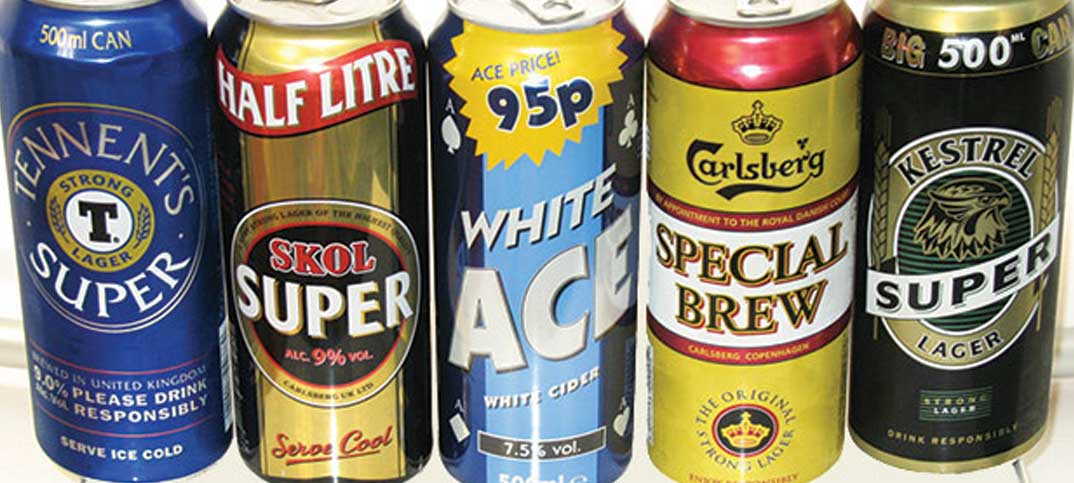What’s the difference between a Willy and a Kestrel? Well, according to the Portman Group the difference is simple – you can stock one, but not the other.
The latest round of decisions made by the Group’s Independent Complaints Panel has led to the Group asking stores to remove 500ml cans of Kestrel Super Premium Lager, Carlsberg Special Brew and Skol Super from their shelves by 1 April.
In a further release it ruled that Willy’s Cider, a 4% product from Chase Distillery, didn’t breach any guidelines and you can sell it with the blessing of the Portman Group.
The decision to ask retailers to remove the three well-known 9% “super-strength” lagers from shelves is an interesting one. The request carries the weight of the Portman Group name – a name which has the backing of companies including Heineken, Diageo, Bacardi and Pernod Ricard, amongst others.
It also carries the weight of the name of Carlsberg – the maker of two of those aforementioned products.
In 2008, seven short years ago, the Portman Group ruled that these 9% lagers were OK. So what’s changed? In the Group’s own words, “the prevailing climate in society”. Not least the fact they signed up to the much-publicised plan to remove one billion units of alcohol within three years.
It was announced at the end of the year that this target had already been exceeded.
High-strength alcohol – in particular products like these – is an easy target. The complaints about these products were made to Portman by a homeless charity, suggesting that they believe there’s a link between the products themselves and those within society most at risk.
Any decision to ask for an outright ban on cans of high-strength alcohol carries with it some inherent risks. Why not rule against other non-resealable products like wine bottles with corks, 660ml or 500ml beer bottles, argues Kestrel producer Brookfield Drinks.
A call for a ban on products such as those is a long way off. But retailers should make sure that they are well aware of the “prevailing climate in society”, as Portman put it.



Comments
This article doesn't have any comments yet, be the first!